Boris in No Rush to Lift Restrictions
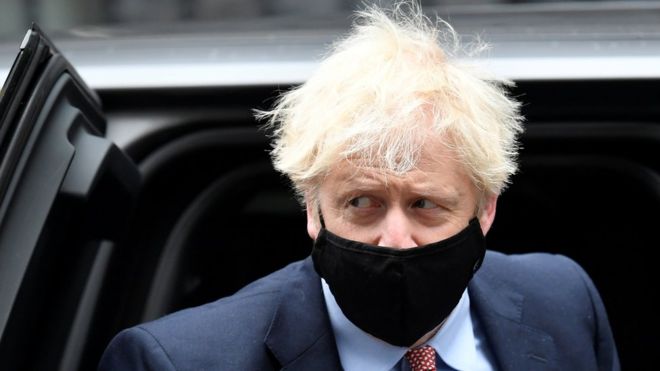
The Telegraph reports that Government ministers are in no rush to lift restrictions, believing the public supports going slow and steady (it’s almost as though someone has scared the bejesus out of them). UnHerd in an editorial has had a shot at predicting how the long lockdown of 2021 will pan out.
Vaccination should mean an end to the lockdowns we’ve experienced so far. Step by step, life will return to normal. Households will be allowed to mix again. Schools, shops, pubs and restaurants will re-open. We might even stop wearing masks.
But there’s a catch: the threat of new variants. Even if vaccination stops the spread of Covid in a particular country, there’s the rest of the world to worry about. If the virus continues to spread and mutate elsewhere, there’s a danger that we’ll import a new variant against which our vaccines are less effective.
Therefore, expect massive public pressure for ongoing restrictions on cross-border travel. Australia doesn’t expect to fully reopen its borders this year – not even if most of its population is vaccinated. In the Republic of Ireland, a recent poll found 90% support for quarantining anyone entering the country.
It’s not that we don’t want things to go back to the way they were – in fact, we’re desperate for them to do so. But that’s precisely why we’ll be so protective of the progress that we do make. Hence, the likelihood of long lockdown aimed at locking out any resurgence of the disease.
For most people, the long lockdown will much easier to bear than the crisis lockdowns we’ve come to know and hate. However, there’s one thing that will be worse about the successor regime – it will be more divisive.
Despite Government statements to the contrary, they predict overt vaccination discrimination.
Another divide that the long lockdown might open up is between the vaccinated and non-vaccinated. The latter are likely to face restrictions that the former don’t. Indeed, discrimination could be a deliberate instrument of policy if achieving herd immunity is deemed to be compromised by the refuseniks.
This is already happening, with travel operator Saga informing customers yesterday that only those who are “fully vaccinated” may travel.
Depressingly, much of this UnHerd piece rings true in terms of how things are likely to go. Having bet the farm on vaccines and winning (well, kind of), the prevailing sense now seems to be that the vaccines are simply not good enough to let us go back to normal – some people will still get ill and die, and new variants will come along that might get round them. The Government has never carried out a proper cost-benefit analysis to determine what the limits should be on lockdowns, so it’s just muddling along without any proper guide ropes. How effective do vaccines have to be – what level of deaths can we live with? There will be no end of new variants. Does this mean lockdown forever? Patrick Vallance has suggested that Covid jabs will become annual, like flu. The Mail reports:
Speaking to Sky News, Sir Patrick said: “I think it’s quite likely that we are going to need regular vaccination, at least for a few years. And I think it’s quite likely those vaccines may need to change a bit as they do for flu every year.”
But he added that it was not yet certain whether annual vaccinations would be taking place.
“We don’t know yet,” he said. “But that will be planned in the way it is planned for flu as well. This virus has taken us by surprise time and time again and we just don’t know. There are fears mutant strains of the virus could get around immunity triggered by vaccines, although a variant with this ability hasn’t been identified.
Sir Patrick told Sky the Government’s scientists are now “increasingly of the view” that the Kent variant “will be susceptible to the vaccine and to previous immunity. The studies are all pointing in that direction so I think that’s good in terms of vaccine effect,” he said. “[But] for some of the others that are popping up around the world – and they will continue to pop up – we’ve still got some question marks as to how effective a vaccine will be.”
Boris Johnson imposed demands for everyone arriving in the UK from abroad to have tested negative for coronavirus and quarantine this week, in an attempt to lock out any new variants.
Sir Patrick said he was pushing ministers for a harder approach against the virus, because their experience since March showed that looser measures easily allowed the virus to resurge.
“I think there is a very simple series of recommendations which I’ve been pushing continuously and I’ll continue to do so, which is the lesson is: go earlier than you think you want to, go a bit harder than you think you want to, and go a bit broader than you think you want to, in terms of applying the restrictions. I’m afraid that’s a grim message but that is what the evidence says – you’ve got to go hard, early and broader if you’re going to get on top of this. Waiting and watching simply doesn’t work.”
Except of course every time we’ve locked down – in March, November and January – it can readily be seen from the data that new infections were falling before the restrictions came in. Why does this simple point never break through in the thinking of senior Government advisers like Vallance?
In this evidence-free atmosphere, the calls of those on the extremes of the debate demanding Zero Covid gain an increasingly sympathetic hearing. Professor Devi Sridhar, the social anthropologist, has redoubled her push for an elimination strategy in a series of tweets. The Herald reports:
[Prof Sridhar tweeted]: “Quite simply: as new variants emerge we don’t know whether our vaccines will protect against them or whether having Covid once means you can’t get it again. Not scaremongering but laying out facts and scientific uncertainty. Why wait and watch instead of getting ahead of this?”She said the good news is that we know how to control Covid through measures including the “buy-in of population that there’s a plan”, robust test/trace/isolate, and very tight border restrictions.
Professor Sridhar, who is an adviser to the Scottish Government, warned that people will not keep complying if they don’t think there’s “light ahead on when life will get back to normal”.
And she said that eliminating the virus should be the goal where possible.
She tweeted: “Countries that have the resources and political will should clearly eliminate COVID-19.”
It’s a topsy-turvy world where this kind of fantasy of eliminating an endemic, highly infectious virus is regarded as a sensible suggestion while sceptics who suggest applying time-honoured public health principles of risk management, heeding the lessons of no-lockdown states like Sweden, are smeared as dangerous enemies of the people.
Stop Press: The Spectator‘s gossip columnist Steerpike quotes Prof Sridhar claiming that an independent Scotland would “definitely” have made different decisions on the pandemic, and that “in the summer, we got the numbers low”. This suggests a failure to understand that COVID-19 is a seasonal respiratory virus and a failure to recognise that most of Europe, including England, had low infections in the warmer months.
Sridhar continues to push Scotland towards a Zero Covid strategy:
So, yeah, I think it is really hard because we’re not getting the support that we require to be able to go the full way we want to go. It’s hard because, I think, you saw in the summer the talks about elimination and zero Covid, clear focus on getting numbers low – we never saw that clarity of vision from England and that’s really hard. We’re still not getting it, and I hope we will get it, but it might take a few more months.
She’s a big fan of Nic Sturge-On:
“I do feel much safer right now being in Scotland, knowing that there’s a leader in charge who takes the health of the public incredibly seriously and takes her job really seriously and is hard-working.”
She contended that “across the political spectrum… in daily life, anyone I speak to, regardless of what they believe or what party they support, has said that she has done a remarkable job”. Professor Sridhar insisted she wasn’t making “a political point” but said she would “take the heat” and “speak what I think is right”.
Worth reading in full.
WHO Updates Guidance on PCR Tests: Recommends Re-Testing to Confirm Positives
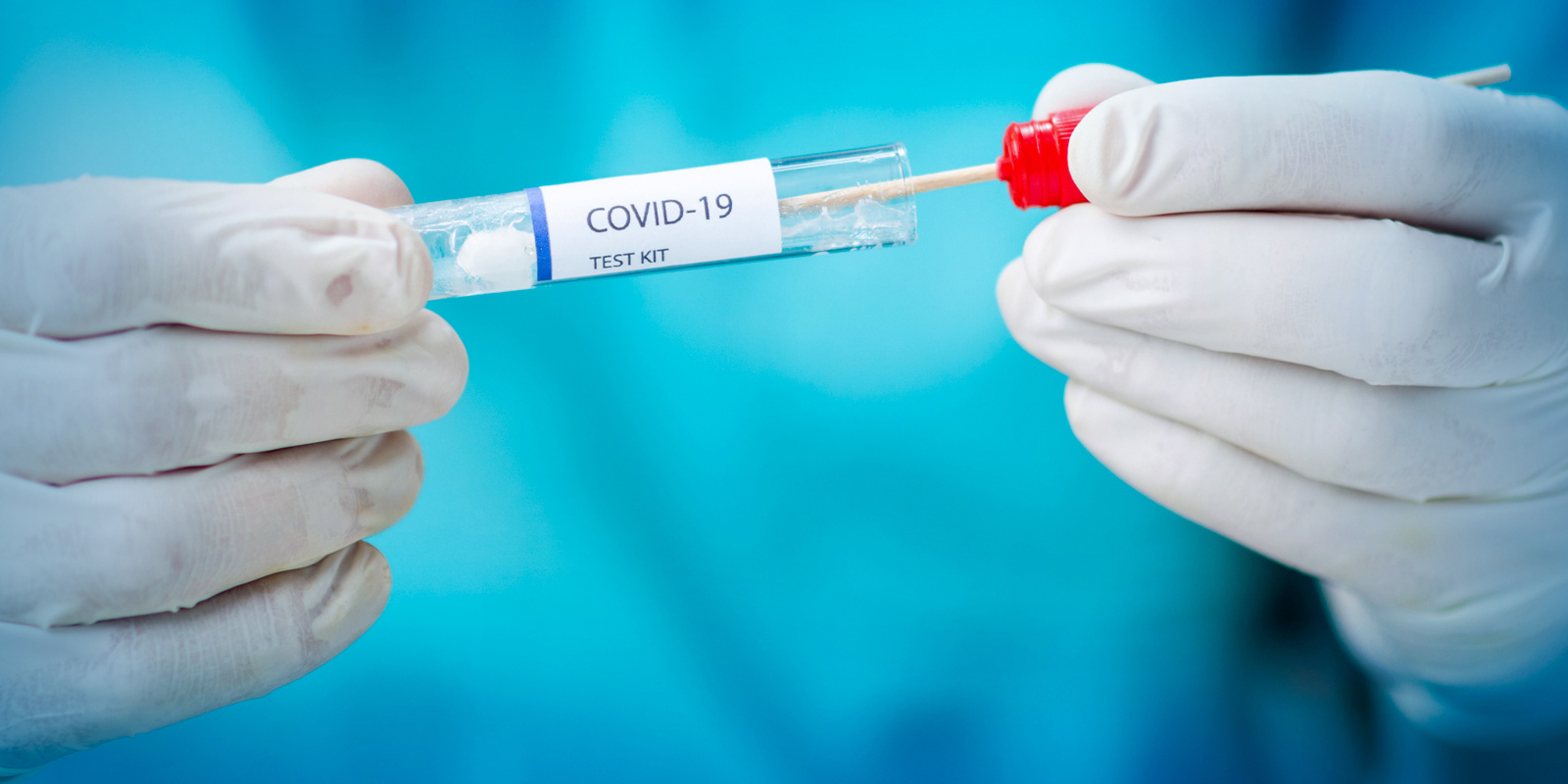
The World Health Organisation has updated its guidance on PCR tests to ensure they are used properly.
Target audience: laboratory professionals and users of IVDs.
Purpose of this notice: clarify information previously provided by WHO. This notice supersedes WHO Information Notice for In Vitro Diagnostic Medical Device (IVD) Users 2020/05 version 1, issued December 14th 2020.
Description of the problem: WHO requests users to follow the instructions for use (IFU) when interpreting results for specimens tested using PCR methodology.
Users of IVDs must read and follow the IFU carefully to determine if manual adjustment of the PCR positivity threshold is recommended by the manufacturer.
WHO guidance Diagnostic testing for SARS-CoV-2 states that careful interpretation of weak positive results is needed. The cycle threshold (Ct) needed to detect virus is inversely proportional to the patient’s viral load. Where test results do not correspond with the clinical presentation, a new specimen should be taken and retested using the same or different NAT technology.
WHO reminds IVD users that disease prevalence alters the predictive value of test results; as disease prevalence decreases, the risk of false positive increases. This means that the probability that a person who has a positive result (SARS-CoV-2 detected) is truly infected with SARS-CoV-2 decreases as prevalence decreases, irrespective of the claimed specificity.
Most PCR assays are indicated as an aid for diagnosis, therefore, health care providers must consider any result in combination with timing of sampling, specimen type, assay specifics, clinical observations, patient history, confirmed status of any contacts, and epidemiological information.
For months now, sceptics have been ridiculed for questioning the accuracy of the PCR test, referring to the risk of false positives when prevalence is low and urging the Government to carry out confirmatory second tests on those that test positive. This updated advice from the WHO is a vindication of our position. We look forward to Governments and health authorities bringing their practices into line with it.
Stop Press: George Michael writes that “False-Positives are Crushing the NHS“.
This analysis explores the very likely possibility that staff, patients, and the NHS as a whole are being mismanaged due to the significant proportion of positive COVID-19 cases in Pillar 1 that are false (where Pillar 1 represents the data from tests carried out in Public Health England (PHE) labs and NHS hospital settings).
Worth reading in full.
The Smearing of Sumption

Luke Gittos in spiked comes to the defence of Lord Sumption, whose comments about how lives are valued in public health policy has been wilfully misunderstood by people determined to demonise lockdown sceptics.
There is something really frightening about the unhinged mobbing of retired Supreme Court justice Lord Sumption that has unfolded over the past few days.
Over the weekend, Sumption appeared on BBC One’s The Big Questions to explore whether lockdown was “punishing too many for the greater good”. In the course of the debate, he entered into an exchange with Deborah James, who has stage-four metastatic bowel cancer.
Sumption said that the life of his grandchildren was worth far more than his own because they had “much more of it ahead”. James, who hosts the BBC’s You, Me and the Big C podcast, said Sumption was wrong to say that therefore her life was “not valuable” as she had less life ahead than many others. Sumption responded by saying, “I didn’t say it was not valuable. I said it was less valuable.”
You do not need a medical degree to know what Sumption was saying. In fact, you probably only need an ounce of common sense. Sumption was making a point about how we ascribe moral value to different lives according to their remaining length and quality. He subsequently explained to Good Morning Britain that he was not making any point about James herself. He said “every policymaker has to make difficult choices. Sometimes that involves putting a value on human life. It’s a standard concept in health economics.” He was making the point that healthcare necessarily involves deciding on what, or rather who, to prioritise. Doctors make such difficult judgment calls every day. This is not controversial.
This issue is central to questions related to lockdown. Those who die of Covid are likely to be very old. The difficult moral question posed by the virus, and our response to it, is how to balance the need to protect the vulnerable with the need to ensure that everyone else continues to receive healthcare when they need it. To pretend that this is a non-issue is to fail to engage with one of the central moral questions raised by the pandemic.
I do not think any of this is revelatory. In fact, I believe everyone knows that this is what Sumption was saying.
Yet this hasn’t stopped people twisting his views, calling them “abhorrent” and comparing him to a eugenicist.
Worth reading in full.
Triple Test Challenge

There’s an opportunity for Lockdown Sceptics readers to get involved in important research putting the different types of COVID-19 tests to the test. From the PhysioFunction website:
Testing in the community: would you like to help in the control of COVID-19 with a free same day test result and a free antibody test if you are positive?
PhysioFunction has been providing COVID-19 testing services since June 2020. We offer:
PCR tests that are processed by a UKAS accredited testing laboratory (No.4236), and
Point of Care Lateral Flow Tests (“rapid 30 minute tests”) adhering to ISO 15189 and ISO 22870 standards.
PhysioFunction has been commissioned to provide supervised PCR sample collection and Lateral Flow Test processing to gather important data on test reliability and accuracy.
We need 1,000 volunteers as soon as possible to take part in the trial – with or without symptoms.
The trial will involve participants taking three coronavirus tests, one after the other:
1. A PCR test which will be sent to a Government processing centre
2. A PCR test which will be sent to a certificated private UKAS accredited laboratory
3. A Lateral Flow test which will produce a result in 30 minutes at the testing site
There is no charge to participants. Participants who test positive will be offered a FREE antibody test after 28 days to confirm the presence or absence of antibodies to the coronavirus.
There are two testing locations – one in Central London and one in the East Midlands, near junction 18 of the M1, at Spratton.
The three tests will only take 15 minutes to complete under supervision by trained staff. The results of the Lateral Flow test, positive or negative, will be communicated to you by email after you have left the test site and the result is known. Additionally, the result of the private PCR test will be communicated to you by email as soon as the result is known – most likely within 24 hours.
In order to take part, you will need to have requested a Government PCR home test kit from www.gov.uk/get-coronavirus-test.
Please book an appointment when you have received your kit.
A confirmation email with the date, time and location will be sent to you to confirm your booking. Please bring the unused Government test kit with you, and be on site at the appointed time. This allows all three tests to be completed at the same time.
We do hope you feel able to do this trial with us, and please do ask some of your friends to do the same.
Please contact us with any queries at info@physiofunctiontrial.co.uk
Thank you for your consideration and assistance.
Doctors Ask for National Breast Screening Service to be Paused

A doctor has written to us with some unwelcome news about the prospect of cancer screening being suspended once more.
We have just received notice from the Association of Breast Surgeons who has written to NHS CEO Simon Stevens asking that yet again the National Breast Screening Service is paused (i.e. stopped). You may know that this was stopped between March and July! Apparently in the interest of minimising risks from Covid.
I have absolutely no idea what the so called “risks” there are. I do not think we have had any nosocomial Covid from women attending either screening service or follow up mammograms.
Sure, for some women delaying screening is of little consequence, but for others it can make a big difference. Either way, even if there could be a demonstrable lack of effect of delaying diagnosis (which there is not) ,I would still find it very difficult to justify stopping screening.
I find the fact that we are prioritising Covid over breast cancer utterly disgusting and a failure of the profession to assess real Covid risks vs “presumed” Covid risks. It also takes away the concept of freedom, in that patients can choose whether or not to attend screening mammograms.
Ivermectin Inches Towards Approval

The awaited meta-analysis of trials involving the drug Ivermectin to treat COVID-19 by Andrew Hill at the University of Liverpool was published as a pre-print on Tuesday.
It concludes: “In six randomised trials of moderate or severe infection, there was a 75% reduction in mortality.”
However, “many studies included were not peer reviewed and meta-analyses are prone to confounding issues. Ivermectin should be validated in larger, appropriately controlled randomised trials before the results are sufficient for review by regulatory authorities.”
A video presentation by Dr Hill was leaked at the end of December. Arab News reported on it earlier this month.
Early-stage trials indicate that a cheap and readily available drug has the potential to make “transformative” changes to COVID-19 mortality rates, according to a leaked presentation by Liverpool University scientists.
Data revealed in the presentation suggested that the drug Ivermectin – normally used to treat lice – could cut deaths in hospitals by as much as 80%.
In 11 trials involving more than 1,000 patients, those who received the drug appeared to clear themselves of the virus in about half the usual time.
Trials of another 5,000 patients have yet to report their results, but Dr. Andrew Hill, the researcher at Liverpool University who gave the leaked presentation, said they are expected soon.
He emphasised that his data looked only at the so-called “gold-standard” randomised controlled trials, in which patients were randomly assigned the drug or a placebo.
“The combined data may be large enough to get to World Health Organization recommendations for treatment being used worldwide,” Hill said.
“If we see these same trends consistently across more studies, then this really is going to be a transformative treatment.”
He said the anti-parasitic drug could be a particularly important weapon against COVID-19 in the developing world because of its low cost. “It’s very attractive because it costs between $1 and $2 for a treatment course,” Hill added.
Dr Sebastian Rushworth has expressed a similarly positive opinion on ivermectin as the meta-analysis in a recent blog post. He goes into some detail about the studies and their shortcomings. He sums up:
Three of the four trials did produce some signal of benefit. However, all four trials had major flaws, and two of the trials that did find a benefit were also giving Doxycycline, which makes it impossible to disentangle whether the potential benefit was coming from Ivermectin or Doxycycline. But these trials were all small, so it’s perfectly possible that there is a benefit but that the trials were just too small to detect it. What we really need now is a big, high quality, double-blind, randomised controlled trial of Ivermectin as a treatment for Covid.
He is hopeful, though:
Do I think the huge reduction in mortality is real? I think it’s very possible. These were after all randomised controlled trials, so the risk of confounding factors is low (with the exception of Doxycycline, which could be responsible for some or even all of the beneficial effect seen). And, as mentioned, the risk of publication bias appears to be pretty low. And the outcome for which there is a big effect size is mortality, which is a hard outcome that is hard for researchers to manipulate.
It’s frustrating that these trials have not been done for a drug so promising. Dr Rushworth suggests a reason why.
If Ivermectin were shown to be effective against Covid, that would be great, because it’s generic, cheap, safe, and widely available, so it would be easy to start treating people quickly. Unfortunately, that also means western pharmaceutical companies have zero interest in doing research on Ivermectin, because there is no way to make a decent profit from it. Who does have an interest? Poorer countries that can’t afford expensive new drugs. That means the research on Ivermectin as a treatment for Covid has been pretty much entirely carried out outside the west.
Worth reading in full.
Stop Press: Robert Clancy, Emeritus Professor of Pathology at the University of Newcastle Medical School in Australia, has written a good piece in Quadrant looking at vaccines and treatments.
More Mask Study Problems

Lockdown Sceptics reader Thomas Verduyn has taken a closer look at the Lancet mask study I criticised yesterday – the one funded by Google claiming to find that a 10% increase in self-reported mask-wearing was associated with much lower R rate – and found more holes. Thomas has a degree in Engineering Science from the University of Toronto where his focus was aerospace engineering. He says he keeps his brain sharp by reading around 10 textbooks a year across a range of subjects. Over to him.
Unfortunately, there are multiple problems with this study.
1. The study did not include mask use at work as they operated on the assumption that most Americans were not going to work. This is a critical omission as lots of people still went to work and also ate lunch together in lunchrooms.
2. The study ends with a list of other factors they did not take into account. For example, they point out “it is difficult to disentangle individuals’ engagement in mask-wearing from their adoption of other preventive hygiene practices, and mask-wearing might be serving as a proxy for other risk avoidance behaviours not queried (e.g. avoiding crowded spaces…)” Any one of these factors might have shifted the results, especially given the observed change in transmission values was small, the averages varying only between 1.0 and 1.1.
3. The study involved so many variables that when I read the report I imagined someone sitting at his computer and adjusting the parameters until the perfect slope resulted. For example, they used a “smoothing parameter for political party identification”. Elsewhere they say: “The percentage of non-White individuals included in the study was included as a confounder because of the relationship of race with epidemiological indicators of SARS-CoV-2.”
4. The study hinges on R values provided from the web site Rt.live. However, according to that web site, the model used to calculate R was “changed significantly on June 19th”. As this date is right in the middle of the mask study, it calls its results into question.
5. Figure 3 (“Mask wearing, physical distancing, and the predicted probability of Rt being less than 1”) is based on a faulty model. According to the graph, if 70% of people wear masks and observe social distancing there is a 100% probability of community transmission control. Given what happened in the Covid second wave, this is nonsense. Here in Manitoba, for example, where nearly 100% of people wear masks and where social distancing is being rigidly enforced, the case numbers went up significantly in November and December.
6. Figure 4 (“Mask wearing in the 14 days before and after state wide mask mandates”) shows that mask use did not increase noticeably in any of the 12 states that made masks mandatory during the study. This raises questions about the validity of the responses by the participants. For example, in Manitoba mask use rose steadily all summer until about 60% of people were wearing masks. Masks were mandated by the provincial government in late September. Almost instantaneously 100% of Manitobans obeyed the order and started wearing masks. I am, in fact, one of only two people I know refusing to wear a mask. Although Americans are indeed quite different to Canadians, it stretches plausibility that a mandatory mask order in a state would not have had an observable effect on mask use. Worse, the report takes this to imply a need for Government to find means of enforcing mask use: “The absence of a statistically significant change in reported mask-wearing during the two weeks following statewide mandates highlights the point that regulation alone might not drive increased masking behaviour.”
7. The study reports that when mask use went up, transmission went down. This was true. However, a cardinal rule of statistics is that correlation is not causation, e.g. although winter always follows the harvest, harvest does not cause winter. The study does not offer any evidence of causation, which instead appears to be assumed throughout the report. One confounding factor is the seasonality of the virus. The virus was naturally declining in most areas just as mask use was on the rise. A second confounding factor was the summer surge in some southern states where mask use was less common, unrelated to masks but adding to the apparent correlation. It would be interesting to see a similar study that covers November and December, when case numbers were rising significantly.
Finally, is there any significance in the timing? The report was published the day before Biden became President. Biden has said he will make masks mandatory. The report concludes by saying: “Policy makers should consider innovative strategies for evaluating and increasing mask usage to help control the epidemic.” This seems very convenient. In any case, certainly it will be called upon as evidence when Biden pursues his nationwide mask mandates. It is therefore very bad news.
A Pharmacist Writes…
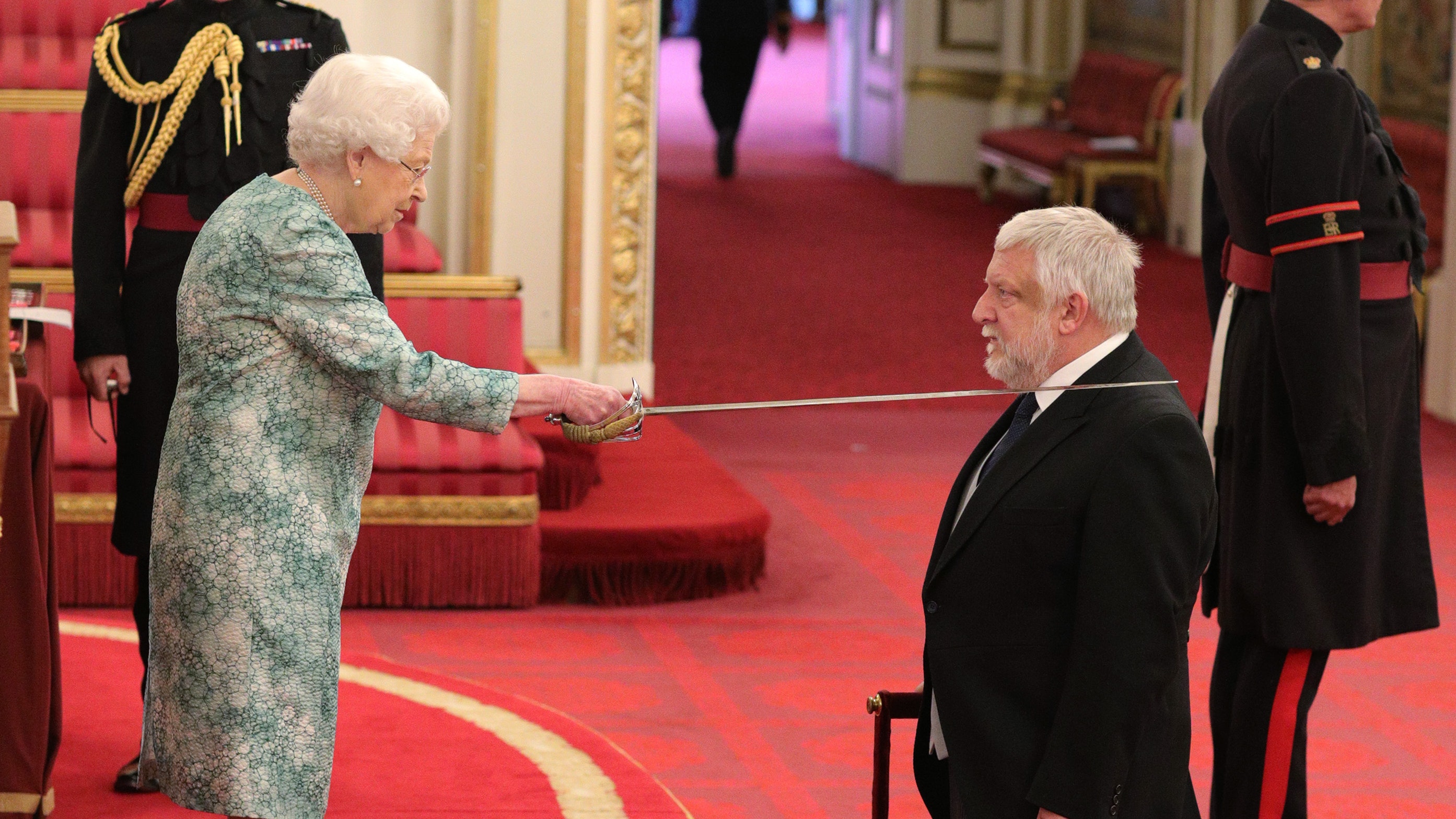
A Lockdown Sceptics reader and pharmacist who works for the NHS in a psychiatric hospital for a large mental health trust in the North has written in with an idea. Why not nominate some sceptic heroes for an honour for their “exceptional contribution to the response to the coronavirus (COVID-19) crisis in the UK”? She writes:
Firstly, I’d like to thank you all for keeping me sane throughout all this. I was a lockdown zealot at first, then in May, a friend showed me a clip of Lord Sumption’s interview by the BBC and I instantly began to question the Government’s course of action. I’d not considered any of the implications on our liberties and I wasn’t aware of any alternative viewpoints or science at this stage. I researched further and further, discovered the likes of Peter Hitchens and the rest of the journalists and scientists questioning the Government narrative. Needless to say I’ve been trying to spread “the word” ever since.
I’ve written to my MP three times, attended a protest and donated money to various crowdfunders. It has been difficult. Family members whom I consider to be highly intelligent with several degrees and MAs between them think I am mad. My mother thinks I need help and has offered the support of a family friend “who sympathises with me on how isolated I might feel right now…” My father thinks Lord Sumption is wrong (what?). My sister disapproves that I have refused the vaccine (it’s my body and it usually takes 10-15 years for a vaccine to be approved so no thank you!).
Anyway, I stumbled across this (see below) and I am contemplating nominating Toby Young or Peter Hitchens. Or perhaps Mike Yeadon or Ivor Cummins or maybe all of them for their continuing dedication to their coronavirus related work! After all it does say you can nominate anyone. Wouldn’t it be great if thousands upon thousands of us nominated Lord Sumption for example.
“Nominate someone for coronavirus-related work (GOV.UK): You can nominate someone who has made an exceptional contribution to the response to the coronavirus (COVID-19) crisis in the UK. Anyone can make a nomination and there is no deadline. Nominations will be considered by an independent honours committee.”
What I find utterly bewildering is, since when did our freedoms become contingent with the smooth running of the NHS? It really is insane all of this and we will look back and wonder what on earth we were doing and all the zealots will be sheepish and insist they questioned lockdowns all along and masks were never really compulsory. To all you at Lockdown Sceptics and those out there, stay strong and never give up.
Requiem for Universities
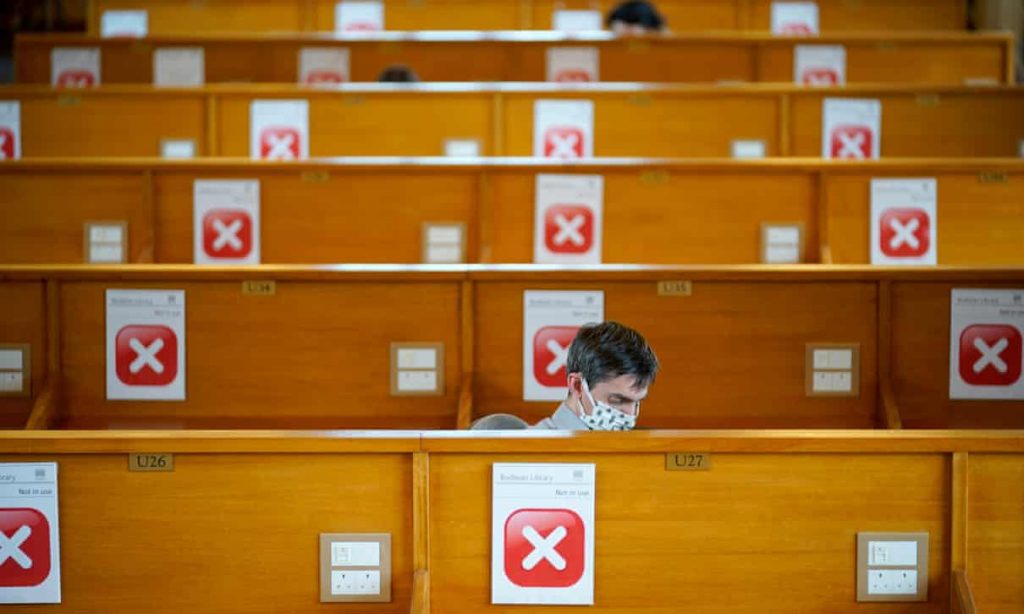
We’re publishing a new piece today by regular Lockdown Sceptics contributor Sinéad Murphy, a philosophy lecturer at Newcastle University. From the introduction:
Universities have been dying for some time. As their prospectuses have grown glossier, their gateway buildings more spectacular and their accommodation for students more stunningly luxurious, the Humanities subjects have been gradually hollowed out.
Academics’ intellectual work has been streamlined by the auditing procedures of the ‘Research Excellence Framework’ and by growing pressure to bid for outside funding, which is distributed to projects that address a narrow range of approved themes – Sustainability, Ageing, Energy, Inequality…
Student achievement has been dumbed down by the inculcation of a thoughtless relativism – Everybody’s different; That’s just my interpretation – and by the annual inflation of grades.
The curriculum has begun to be tamed by continual revision – never broad enough, never representative enough – and by the drive for ‘equality and diversity’.
And teaching has been marginalised by the heavy requirements that it represent itself on ever proliferating platforms and review itself in endless feedback loops.
Universities, in short, have been gradually transforming into what they proudly trumpet as a Safe Space, a space that has been cleared at greatest expense to Humanities subjects, a space in which the slightest risk – that a thought might lead nowhere, that a student might be uninterested, that an idea might offend or that a teacher might really persuade – has been mitigated by so many layers of bureaucratic procedure that most of everyone’s time is spent in wading through them.
Covid has brought these developments to a head, she says: “Safe Space universities have come to their culmination. No space is safer than an empty space. And universities are empty at last. The shell has cracked and fallen away. The university is no more.”
Worth reading in full.
Poetry Corner
Spotted by a Lockdown Sceptics reader below Allison Pearson’s column in the Telegraph. By David Jones.
Sorry, short of nurses,
And doctors rather few,
Short a bit of masks and kit
For beds there’s quite a queue!
We’ve Managers and Admin,
And Directors in their hordes,
We’ve nigh on half a million
On Agencies and Boards!
On Trusts and Panels nationwide
We take our pay and pension,
On Senates and Commissions
And Groups we couldn’t mention!
Our new Computer System
Ten billion spent in vain…
By some odd quirk it wouldn’t work,
We’ll have to buy again!
Our En-Aitch-Ess is in a mess
Your taxes keep us going;
Send forty billion every year
And keep that money flowing!
Round-up
- “What Covid tests can we trust?” – Tom Chivers in UnHerd looks at the debate raging between scientists on whether PCR or LFT is better. We’re on Team Mina – the Harvard Professor of Epidemiology Michael Mina who favours the LFT
- “It’s not just you: Why the current lockdown is having an extreme effect on mental health” – Sarah Manavis in the New Statesman on the mental health crisis that is only getting worse
- “Living amongst the Possessed” – Hugh Willbourn suggests people have become possessed by fear and empathy is needed to win them over
- “Piers Morgan steps in as Dr Hilary blasts ‘scaremongering’ guest over vaccine with viewers divided” – Covid vaccines have not been tested on pregnant women so there is no way to know if they’re safe and Government advice is that they should not routinely be given to them, yet GMB’s TV doctor told a fellow guest she was “scaremongering” for pointing this out
- “Snowdon Quillette Response” – Ivor Cummins gives Christopher Snowdon’s recent pro-lockdown piece a full Fisking
- “‘Dream on!’ Speaker Lindsay Hoyle slapped down for lockdown-style climate change rules” – Lindsay Hoyle causes a stir by suggesting Covid-style social restrictions might also work well for curbing climate change, the Express reports
- “‘Sharp drop’ in heart-attack hospital admissions” – BBC report on some worrying statistics
- “Ontario lockdown ‘not supported by strong science,’ says former Chief Medical Officer of Health” – A Canadian public health panjandrum speaks truth to power
- “Rishi Sunak set to extend furlough scheme past April” – Ominous if true
- “Our children’s lives matter, and for that reason we must #unlocktheschools” – Alexander McCarron tweets Unlocked UK’s new video
Theme Tunes Suggested by Readers
Three today: “Ruins” by Cat Stevens, “Better off dead” by Elton John and “I’ll Stay Till the Beer Runs Out” by Ray Sanders.
Love in the Time of Covid

We have created some Lockdown Sceptics Forums, including a dating forum called “Love in a Covid Climate” that has attracted a bit of attention. We have a team of moderators in place to remove spam and deal with the trolls, but sometimes it takes a little while so please bear with us. You have to register to use the Forums as well as post comments below the line, but that should just be a one-time thing. Any problems, email the Lockdown Sceptics webmaster Ian Rons here.
Sharing Stories
Some of you have asked how to link to particular stories on Lockdown Sceptics so you can share it. To do that, click on the headline of a particular story and a link symbol will appear on the right-hand side of the headline. Click on the link and the URL of your page will switch to the URL of that particular story. You can then copy that URL and either email it to your friends or post it on social media. Please do share the stories.
Social Media Accounts
You can follow Lockdown Sceptics on our social media accounts which are updated throughout the day. To follow us on Facebook, click here; to follow us on Twitter, click here; to follow us on Instagram, click here; to follow us on Parler, click here; and to follow us on MeWe, click here.
Woke Gobbledegook
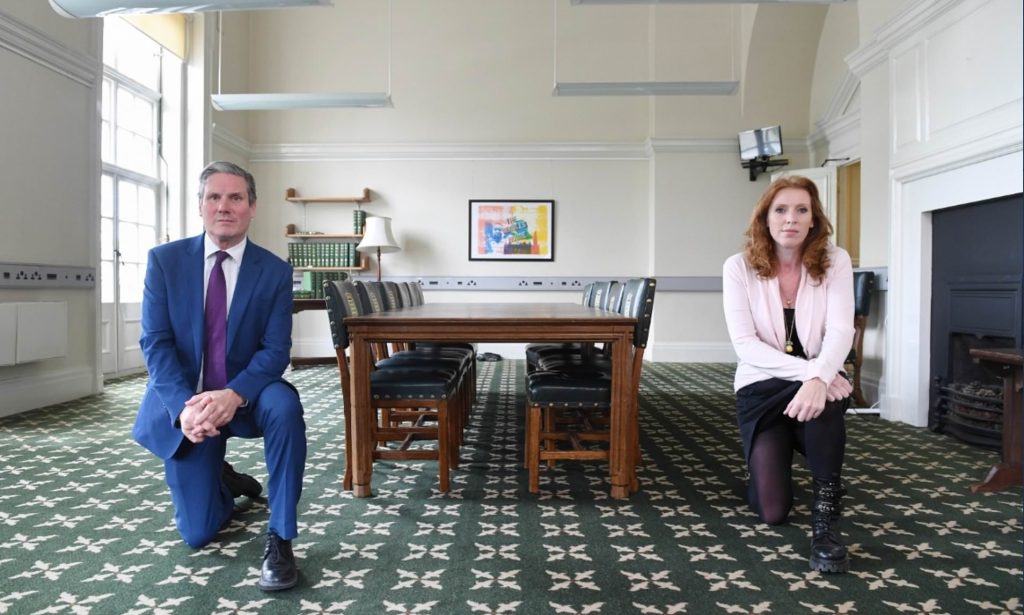
We’ve decided to create a permanent slot down here for woke gobbledegook. Today, it’s the turn of the University of Leicester and its proposal to drop Chaucer and other medieval literature from the English syllabus in favour of a full panoply of wokery. The Telegraph has the story.
The University of Leicester will stop teaching Geoffrey Chaucer’s work and other medieval literature in favour of modules on race and sexuality, according to new proposals.
Management told the English department that courses on canonical works will be dropped for modules “students expect” as part of plans now under consultation.
Foundational texts like The Canterbury Tales and Anglo-Saxon epic Beowulf would no longer be taught under proposals to scrap medieval literature.
Instead the English faculty will be refocused to drop centuries of the literary canon and deliver a “decolonised” curriculum devoted to diversity.
Academics now facing redundancy were told via email: “The aim of our proposals (is) to offer a suite of undergraduate degrees that provide modules which students expect of an English degree.”
New modules described as “excitingly innovative” would cover: “A chronological literary history, a selection of modules on race, ethnicity, sexuality and diversity, a decolonised curriculum, and new employability modules.”
Worth reading in full.
Stop Press: Listen to American academic John McWhorter talk about the ideological excesses of the social justice movement on the Quillette podcast.
“Mask Exempt” Lanyards

We’ve created a one-stop shop down here for people who want to obtain a “Mask Exempt” lanyard/card – because wearing a mask causes them “severe distress”, for instance. You can print out and laminate a fairly standard one for free here and the Government has instructions on how to download an official “Mask Exempt” notice to put on your phone here. And if you feel obliged to wear a mask but want to signal your disapproval of having to do so, you can get a “sexy world” mask with the Swedish flag on it here.
Don’t forget to sign the petition on the UK Government’s petitions website calling for an end to mandatory face masks in shops here.
A reader has started a website that contains some useful guidance about how you can claim legal exemption. Another reader has created an Android app which displays “I am exempt from wearing a face mask” on your phone. Only 99p.
If you’re a shop owner and you want to let your customers know you will not be insisting on face masks or asking them what their reasons for exemption are, you can download a friendly sign to stick in your window here.
And here’s an excellent piece about the ineffectiveness of masks by a Roger W. Koops, who has a doctorate in organic chemistry. See also the Swiss Doctor’s thorough review of the scientific evidence here and Prof Carl Heneghan and Dr Tom Jefferson’s Spectator article about the Danish mask study here.
Stop Press: WalesOnline reports on a video of a woman without a mask being escorted from Sainsbury’s while telling police she doesn’t need to wear one. She can be heard arguing the officers had “no right to ask me what my disability is. It’s against the law”. Worth bearing in mind that in our Covid police state officers are empowered to enforce Covid regulations, including mask-wearing, and can issue fines as they see fit, including through determining whether in their view you have a “valid exemption“. Whether it would stand up in court is another matter, but there can be no doubt that police officers have indeed been given frightening powers to issue fines and enforce rules according to their own discretion.
The Great Barrington Declaration
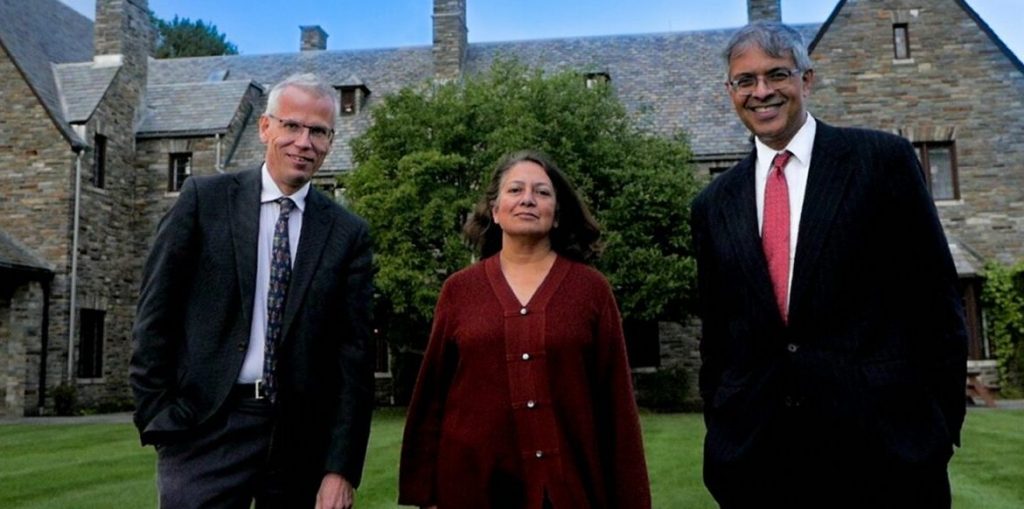
The Great Barrington Declaration, a petition started by Professor Martin Kulldorff, Professor Sunetra Gupta and Professor Jay Bhattacharya calling for a strategy of “Focused Protection” (protect the elderly and the vulnerable and let everyone else get on with life), was launched in October and the lockdown zealots have been doing their best to discredit it ever since. If you googled it a week after launch, the top hits were three smear pieces from the Guardian, including: “Herd immunity letter signed by fake experts including ‘Dr Johnny Bananas’.” (Freddie Sayers at UnHerd warned us about this the day before it appeared.) On the bright side, Google UK has stopped shadow banning it, so the actual Declaration now tops the search results – and Toby’s Spectator piece about the attempt to suppress it is among the top hits – although discussion of it has been censored by Reddit. The reason the zealots hate it, of course, is that it gives the lie to their claim that “the science” only supports their strategy. These three scientists are every bit as eminent – more eminent – than the pro-lockdown fanatics so expect no let up in the attacks. (Wikipedia has also done a smear job.)
You can find it here. Please sign it. Now over three quarters of a million signatures.
Update: The authors of the GBD have expanded the FAQs to deal with some of the arguments and smears that have been made against their proposal. Worth reading in full.
Update 2: Many of the signatories of the Great Barrington Declaration are involved with new UK anti-lockdown campaign Recovery. Find out more and join here.
Update 3: You can watch Sunetra Gupta set out the case for “Focused Protection” here and Jay Bhattacharya make it here.
Update 4: The three GBD authors plus Prof Carl Heneghan of CEBM have launched a new website collateralglobal.org, “a global repository for research into the collateral effects of the COVID-19 lockdown measures”. Follow Collateral Global on Twitter here. Sign up to the newsletter here.
Judicial Reviews Against the Government

There are now so many legal cases being brought against the Government and its ministers we thought we’d include them all in one place down here.
The Simon Dolan case has now reached the end of the road. The current lead case is the Robin Tilbrook case which challenges whether the Lockdown Regulations are constitutional. You can read about that and contribute here.
Then there’s John’s Campaign which is focused specifically on care homes. Find out more about that here.
There’s the GoodLawProject and Runnymede Trust’s Judicial Review of the Government’s award of lucrative PPE contracts to various private companies. You can find out more about that here and contribute to the crowdfunder here.
And last but not least there was the Free Speech Union‘s challenge to Ofcom over its ‘coronavirus guidance’. A High Court judge refused permission for the FSU’s judicial review on December 9th and the FSU has decided not to appeal the decision because Ofcom has conceded most of the points it was making. Check here for details.
Samaritans

If you are struggling to cope, please call Samaritans for free on 116 123 (UK and ROI), email jo@samaritans.org or visit the Samaritans website to find details of your nearest branch. Samaritans is available round the clock, every single day of the year, providing a safe place for anyone struggling to cope, whoever they are, however they feel, whatever life has done to them.
Shameless Begging Bit
Thanks as always to those of you who made a donation in the past 24 hours to pay for the upkeep of this site. Doing these daily updates is hard work (although we have help from lots of people, mainly in the form of readers sending us stories and links). If you feel like donating, please click here. And if you want to flag up any stories or links we should include in future updates, email us here. (Don’t assume we’ll pick them up in the comments.)
And Finally…





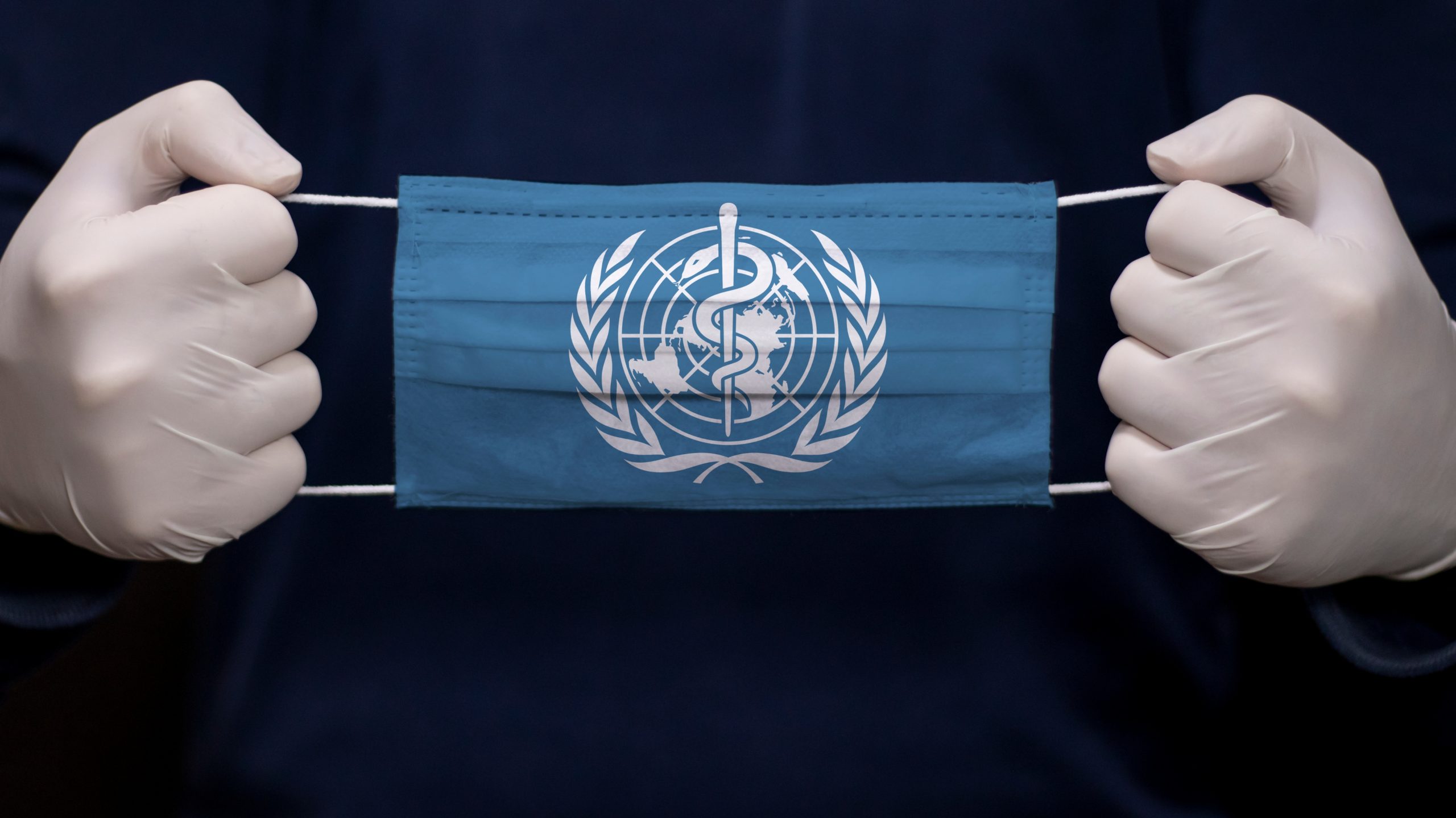





To join in with the discussion please make a donation to The Daily Sceptic.
Profanity and abuse will be removed and may lead to a permanent ban.